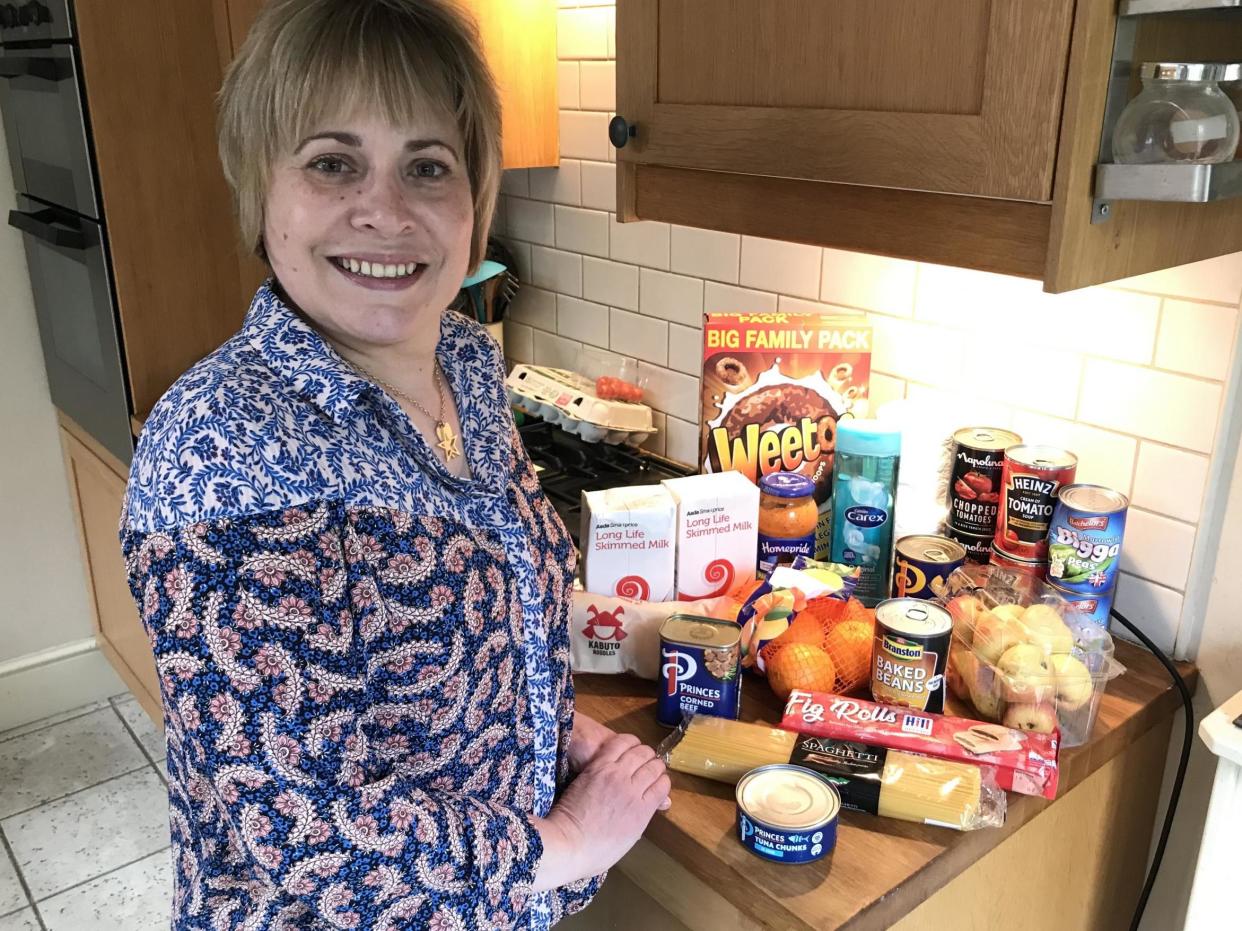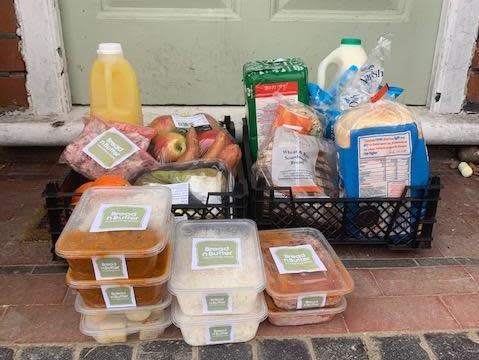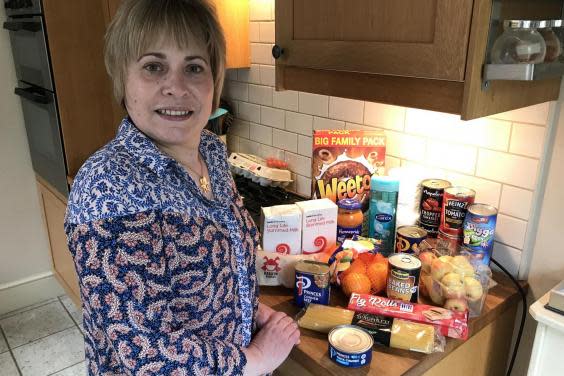Help the Hungry: Emergency food packages bring relief to Britain’s most vulnerable self-isolators

More than a million people across Britain with serious health conditions have been observing the strictest self-isolation during the coronavirus outbreak, and many stuck indoors have been struggling to get the food they need to survive.
Some of those following “shielding” guidance have revealed the extraordinary efforts of neighbours and charities to help them out – as The Independent’s Help The Hungry campaign supports the work going on acriss the country to ensure everyone has enough to eat during the crisis.
Elise, a mum-of-three and survivor of cervical cancer, has found it difficult to get supplies over the past two weeks. Although the 40-year-old she’s been in remission since last year, she has been told not to leave the house at all for 12 weeks because of complications related to her immune system.
With three young children in the house, Elise has counted on friends and local food group BreadnButter to drop off packages at her home in north London’s Grahame Park.
“It’s been frustrating and stressful at times having to stay inside,” she said. “But we’ve been getting through it so far. I’ve tried to order from the supermarkets but I can’t get a delivery, which has made impossible to do it alone.”
Elise added: “The guys at BreadnButter have been brilliant. They’ve dropped off fresh fruit and vegetables, bread milk and some of the gluten-free products I need. It’s been such a massive help.”
BreadnButter – a social enterprise based in Edgeware which usually teaches cooking skills – has adapted to the crisis by getting between 300 and 600 food parcels and cooked meals out each day to people having to self-isolate.
Food surplus charity The Felix Project – one of The Independent’s key partners in the Help The Hungry campaign – has been supplying the group with several dozen crates of fresh produce each week.
“Some people we usually work with are used to convenience meals, so we’re trying to make things a bit easier for them by having nutritious meals already prepared,” explained founder Vicki Williams.

Earlier this week, the government began getting emergency food parcels out to some of the 1.5 million deemed “clinically vulnerable” – those advised by the NHS not to leave home at all for the next 12 weeks.
Jo Willacy, 47, received one of the emergency packages at her home in Hertfordshire on Wednesday, after registering for help on the government website a week ago. The freelance writer has cystic fibrosis (CF) and CF-related diabetes. Because of her condition, both she and her husband have been told to stay indoors completely, and remain a few steps apart from each other.
“It has been difficult – when I opened up the box it felt like a weight had been lifted off my shoulders,” she said. “It was hugely welcome. I was getting worried about running out of the basics, and the things I need because I have a diabetic hypo, when your blood sugars fall dangerously low. So all the biscuits, fruit, cereal, it was a real relief.”

Ms Willacy has not yet been able to arrange a delivery through a supermarket service for “vulnerable customers”, but is hoping that will begin to provide a regular supply of food.
“Some of the neighbours have been great, but they have their own tricky situations, so I don’t want to be dependent on them for the next three months.”
The government is not expecting all 1.5 million clinically vulnerable people to apply for state help in getting food. The department for communities and local government has told local authorities that the food industry could help provide emergency packages to around 400,000 people within four weeks, “should this be required”.
It the short-term, food aid charities and small groups of volunteers are doing their best to fill many of the hunger gaps popping up across the country, as people suffer from job losses and falls in income as well as health and isolation problems.
The Felix Project has supplied food to the Living Way Ministries church in north London’s Colindale, before parishioners drop off food to vulnerable people stuck indoors since the pandemic began.
Melanie Clark, 48, has a large family to look after – and has been struggling to get a regular supply of shopping to her 86-year-old mother living a few miles away.
“Mum broke her hip last year and has other health issues, so she’s very vulnerable. We’re being careful to shield her and we’ve been dropping off food at her door as often as possible,” Ms Clark said.
“When the Living Way Ministries people dropped off shopping for her, she was so overwhelmed she burst into tears. It was so kind and so lovely of them to do that. At the moment things are so uncertain, we just don’t know how regularly she might need extra help like that.”
The Independent is asking food aid charities to contact us at helpthehungry@independent.co.uk to tell us about your project and what problems you are facing right now.
You can help us build a directory of ways that our readers can help the hungry in their area – through money, volunteering and food donations. Find out more about how you can support the Help the Hungry campaign here.
Read more
When can we really expect coronavirus to end?
Everything you need to know on supermarket delivery slots
The dirty truth about washing your hands
Which countries around the world has coronavirus spread to?
Listen to the latest episode of The Independent Coronavirus Podcast

